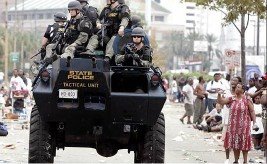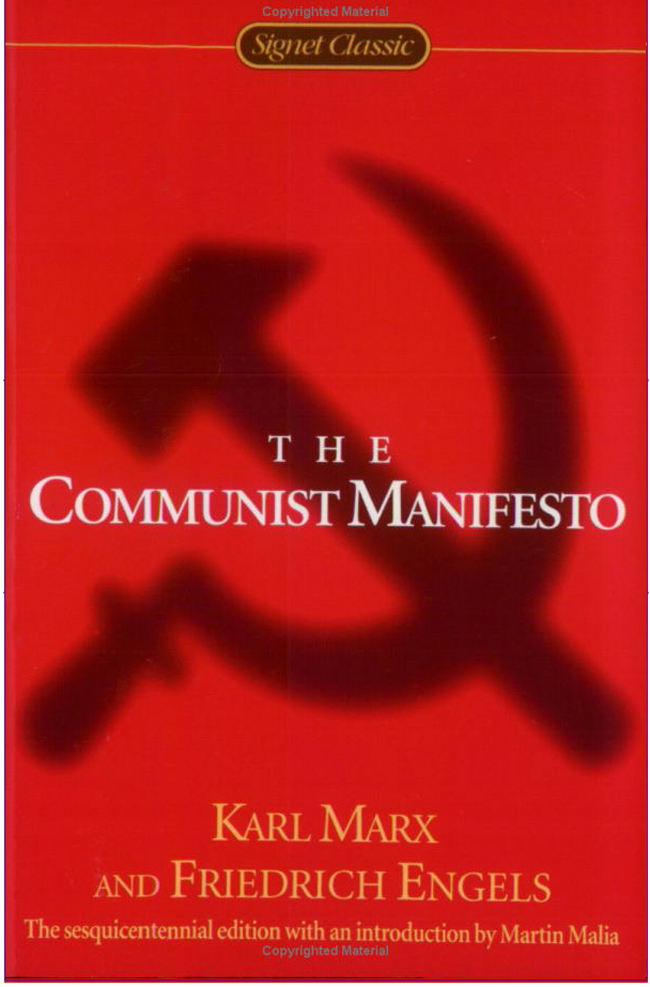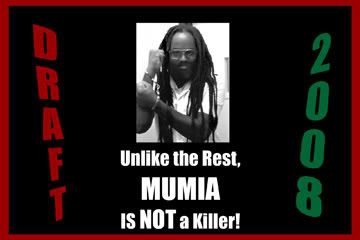Slow-Motion Genocide Continues in New Orleans
 In Tuesday's New York Times, Susan Saulny wrote an article highlighting another site of struggle in the effort - undertaken at every level of government - to cleanse New Orleans of its Black population. While FEMA began this Race War with psy-ops meant to confuse and disorient the city's residents, the City Council, City Housing Authority, HUD, and Congress have each taken up the baton.
In Tuesday's New York Times, Susan Saulny wrote an article highlighting another site of struggle in the effort - undertaken at every level of government - to cleanse New Orleans of its Black population. While FEMA began this Race War with psy-ops meant to confuse and disorient the city's residents, the City Council, City Housing Authority, HUD, and Congress have each taken up the baton.This breathtaking account reveals both the committment of the internally displaced residents of New Orleans and the staggering duplicity of those institutions - at every level - attempting to break them. The piece begins:
Hundreds of displaced residents of public housing have for several days been returning here for the first time since Hurricane Katrina...As we at Savage Justice highlighted yesterday, the government has no interest in "helping" those residents reclaim their land or restore their lives. Their interest lies in cleasing New Orleans of its Black population by artificially inflating property values and gentrifying the city- turning it into a Las Vegas-type tourist trap: a casino and strip mall paradise. The piece continues, describing their tactics for doing just that:
The city, saying the projects are not ready, has refused.
Outside the largest complex, the St. Bernard Housing Development in the Seventh Ward, tenant groups have organized evacuees into a tent city called Survivors Village. At the C. J. Peete Development in Central City, older residents, mostly women, broke into their old apartments and carted away plastic bags of refuse and ruined furniture.
At the Florida housing complex in the Ninth Ward, residents slipped through fences topped with razor wire to reach their old units...
Evacuees traveling from Atlanta, Baton Rouge, Houston and elsewhere fumed at the city and federal housing officials who have opened fewer than 1,000 of more than 8,000 public housing units in a city suffering from a housing crisis and a shortage of workers...
"They're not giving us any help, and we're tired of waiting," a resident, Nickole Banks, said of the Housing Authority. "People want to come home."
Damage to the projects ranged from very little to severe. The Housing Authority says that as many as 90 percent of the apartments are unsafe and uninhabitable and that time-consuming environmental evaluations remain unfinished. To the residents, these are excuses. They fear that city officials are really trying to redevelop the projects to bring in other residents with more money.Can it be more open than that? "Private developers" - a.k.a. New York Times advertisers - have openly and plainly broadcasted their desire to cleanse New Orleans. The only option for the city's residents is to fight them with every tool at their disposal.
That is a move that some city and federal officials say would be desirable. Private developers have openly discussed the possibility of rebuilding some projects to house a much wider range of tenants.
"They're trying to steal New Orleans from us," Phyllis Jenkins, who has been living in Fort Worth, said Sunday outside what used to be her home in the sprawling St. Bernard development. "Well, I will not be displaced anymore. I'll take my home any way they give it to me. It's been 10 months. They've got to know we're serious. We're going to stand here until they let us in our homes."Despite these effort to cleanse New Orleans silently, the pure, unvarnished racism inherent in such a fight could not be more clear. The piece continues:
Local officials have been clear that they do not want to return to the way things were before the storm, when 10 traditional public housing developments concentrated low-income residents in some of the worst conditions in the city, leading to intense crime and drug use.The piece then proceeds to describe how a slow-motion campaign to cleanse the city of its poor and Black residents had begun before Katrina struck. After Katrina, however, things got far worse.
"We don't need to recreate pockets of poverty," the president of the City Council, Oliver M. Thomas Jr., said. "They don't work. We want more mixed-income, working communities. I think that's really the only way."
Some officials have made remarkably unveiled comments suggesting that the storm did the city a favor in terms sweeping away the poor.
Representative Richard H. Baker, a Republican from Baton Rouge, said just after the hurricane: "We finally cleaned up public housing in New Orleans. We couldn't do it. But God did."
Not only do those displaced have to fight the city of New Orleans, the developers, and the gentrifiers to whom they market. Now they must also fight the federal government, whose sole aim is to assist the developer's effort to cleanse the city.
The poor and their advocates see the lack of action as a delay tactic to diminish the chances that many would return.However, this news hardly prevents HUD from giving away the same land to which its residents cannot return.
The Federal Department of Housing and Urban Development, which took control of the bankrupt local housing authority years ago, says it is continuing to assess the storm damage to the buildings.
"I wish I could say everything's great, come on home," an assistant secretary, Orlando J. Cabrera, said in an interview. "But it's not great."
Mr. Cabrera said considerable federal money was available to allow private builders to redevelop public housing in such situations. The Housing Authority has begun to apply for those funds.This is the game currently being played throughout New Orelans. On one hand, we have a dedicated, committed population with a historical tie to the land struggling to retain what is rightfully theirs.
On the other hand, we have Uncle Sam's parasites and profiteers exploring ways to exploit the aftermath of Hurricane Katrina in whatever ways possible that can enrich themselves.
For the Black community on Sam's plantation, and for radicals everywhere, the stakes in this fight cannot be more important.







<< Home